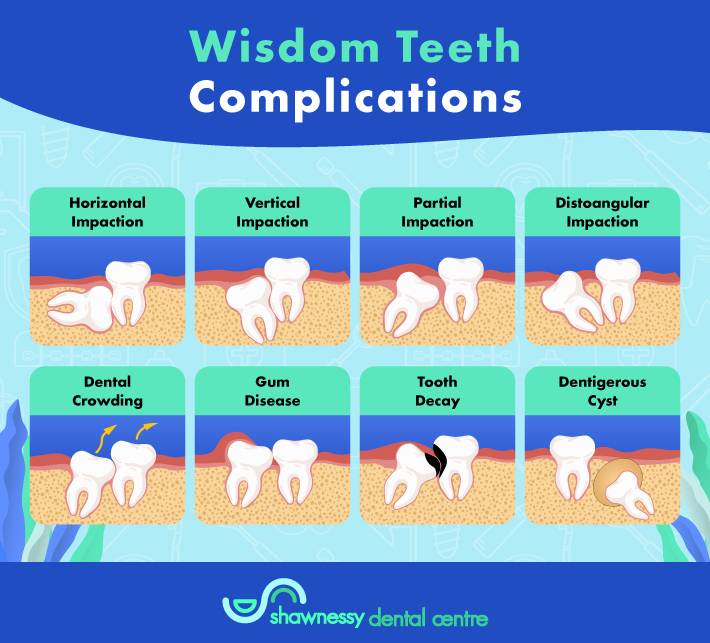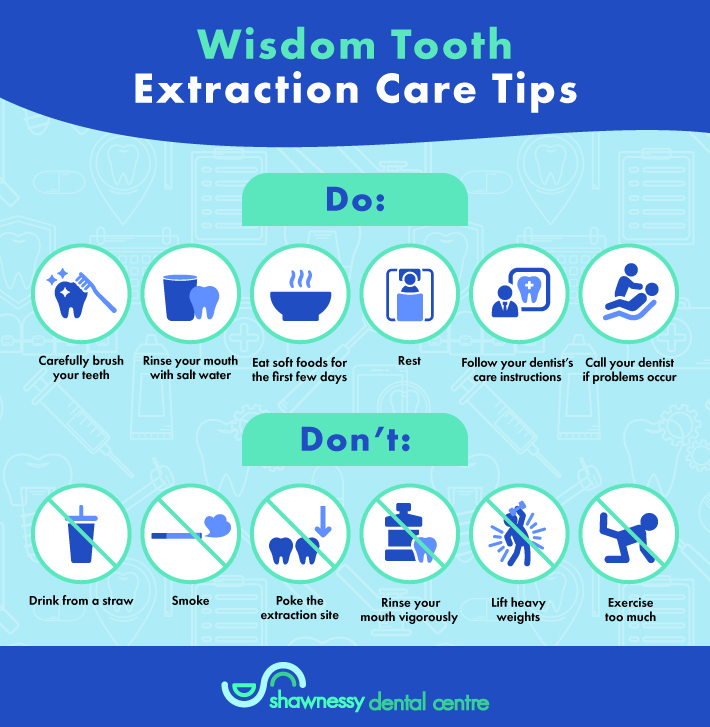Wisdom teeth can appear in late adolescence or early adulthood. While some people breeze through this dental milestone without issues, others may experience several symptoms.
Tenderness, pain, and discomfort in the back of your mouth are often the first signs of wisdom teeth coming in. Recognizing these signs can help you know when to visit a dentist to manage discomfort and prevent potential complications.
What Are Wisdom Teeth?
Wisdom teeth, or third molars, are a natural part of our dental anatomy. These teeth appear at the very back of our mouth.
For some people, their wisdom teeth grow properly, while for others, they don’t have room to grow properly. When wisdom teeth get stuck in the gums or jawbone, they can cause pressure, pain, or damage to other teeth. In some cases, impacted wisdom teeth can cause infections.
Signs of Wisdom Teeth Erupting
When wisdom teeth start to emerge, you might notice some signs, including:
- Gum tenderness
- Swelling
- Mild pain or discomfort
- Redness or inflammation
- White spots
How Early Can Wisdom Teeth Appear?
Third molars are called wisdom teeth because they normally appear between the ages of 17 and 21. However, you might not be able to see impacted wisdom teeth that are stuck in your gums or jawbone. To detect impacted wisdom teeth, your dentist takes dental X-rays to see underneath the gum line.
What Causes Wisdom Teeth to Erupt?
In a child’s jaw, there’s often not enough room for wisdom teeth to come in. But as you age and your jaw grows, your mouth has more space to accommodate extra molars.
Historically, these teeth helped our ancestors eat coarse, rough food that required stronger chewing power. Due to changes in our diet and advances in dental care, wisdom teeth serve little to no purpose. Dietary changes also eventually lead to some evolutionary changes. Modern humans have smaller jaws, so many people don’t have sufficient room in their mouths for wisdom teeth to erupt properly.
Lack of space in our mouths can lead to problems like crowding, misalignment, or impacted teeth. In these cases, a dentist may recommend extraction to prevent further oral complications.
Why Do Wisdom Teeth Hurt?
Wisdom teeth pain is a common concern for many people, especially during their late teens to early twenties when these molars typically begin to emerge.
Pain and discomfort are among the first signs that wisdom teeth are erupting. Impacted or overcrowded teeth exert more pressure and can often cause discomfort. Additionally, inflammation of the gums (pericoronitis) can occur when wisdom teeth have erupted partially, leaving gum tissue vulnerable to infection.

Does Wisdom Teeth Pain Go Away?
The duration of the discomfort can depend on the person. In some cases, discomfort subsides as the teeth adjust and settle into their position.
However, if pain persists beyond a few days or recurs, it will unlikely go away on its own. Consistent and frequent pain can indicate more serious issues like infections or severe misalignment and should be examined by your dentist as soon as possible.
Symptoms like swelling, reduced jaw movement, or fevers may also warrant a prompt consultation with your dentist. If it hurts, it should be examined! Treatment helps keep your mouth healthy and prevent further complications.
Should I Remove My Wisdom Teeth if They Don’t Hurt?
For some people, their wisdom teeth never cause any pain or discomfort. However, even asymptomatic wisdom teeth can still introduce problems in the future.
Can I Let My Wisdom Teeth Grow In?
With sufficient space in the mouth and jaw, wisdom teeth can erupt properly and settle into a good position.
However, allowing wisdom teeth to grow can increase the risk of alignment issues. As third molars emerge, they can push against existing teeth and disrupt the alignment of your smile.
Risks Associated with Wisdom Teeth Erupting
In addition to causing pain, discomfort, and alignment issues, wisdom teeth can also:
- Trap food and debris behind the tooth
- Impact dental hygiene and lead to tooth decay
- Lead to inflammation and gum disease
- Develop a fluid-filled cyst
How Do I Know if My Wisdom Teeth Need to Be Removed?
Your dentist may recommend extraction if you experience pain and discomfort. They may also suggest extraction if:
- Your jaw is too small for wisdom teeth
- Your wisdom teeth erupt only partially
- The teeth impact the gums or other teeth
How Are Wisdom Teeth Extracted?
A dentist can often extract wisdom teeth in their office. Your dentist will discuss the potential risks of keeping your wisdom teeth or removing them so you can make an informed decision.
If you proceed with extraction, your dentist will numb the area around the impacted tooth or give you sedation medicine. During the procedure, the dentist will open the gum tissue and remove any bone covering your third molar.
After separating the tissue that connects the tooth to the bone, your dentist removes the wisdom tooth. Sometimes, they’ll have to cut the wisdom tooth into smaller pieces to remove it.
You may need stitches after removal. Your dentist will let you know if your stitches need to be removed after a few days. Some stitches will dissolve on their own.
How Long Does the Procedure Take?
Wisdom teeth removal normally takes about an hour to complete. Your surgeon can typically extract all 4 of your wisdom teeth (if you have all 4) within 90 minutes. If your teeth are impacted or in a difficult position, the procedure may last longer.
What Is Recovery Like?
Full recovery can take a while, but most people can return to regular activities after a few days. At the extraction site, a blood clot will form, which is a crucial part of the healing process.
Generally, you should only eat soft foods at first. You can slowly incorporate solid foods into your diet as you heal. Do not use straws for the first few days. Any excessive slurping or sucking motion can loosen the blood clot.

You will receive incision care instructions from your dentist. Following your dentist’s advice helps the recovery process and reduces further complications. Your dentist may also prescribe medications to manage pain and inflammation.
Do You Have Tooth Pain?
If you or your child has a severe toothache or jaw pain, it might be a sign of impacted wisdom teeth. Don’t hesitate to contact our team at Shawnessy Dental Centre. Simply call our office and explain the symptoms. We’d be happy to identify the issue and provide appropriate treatment.


